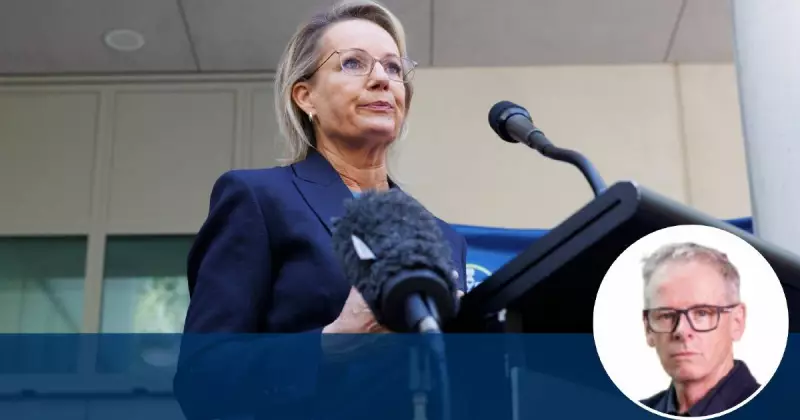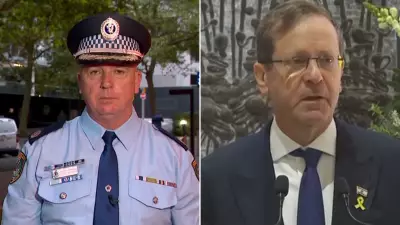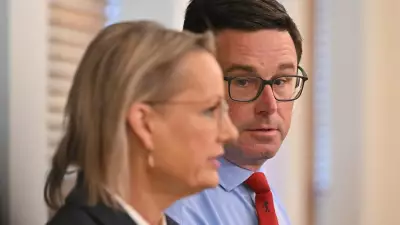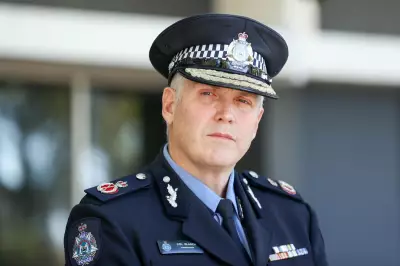
Federal Opposition Leader Sussan Ley finds herself navigating treacherous political waters after executing a dramatic policy reversal that has left both colleagues and commentators bewildered. The Liberal Party's first female leader now faces mounting pressure to either reclaim control of her party's direction or risk being ousted from leadership entirely.
Policy Contradictions Create Confusion
In what political observers describe as an astonishing political manoeuvre, Ley has managed to simultaneously stand for something and nothing. The Liberals now officially oppose achieving net-zero carbon emissions by 2050, despite this being party policy during the last two federal elections. More confusingly, they maintain alignment with the Paris Agreement, which provides the international framework for that very 2050 target.
The policy shift has created what analysts call an incoherent formula that is barely explainable. The party now describes the net-zero target as a handbrake on the Australian economy while simultaneously suggesting that achieving it would be welcomed.
Community and Expert Backlash Grows
The policy reversal has triggered pointed questions from concerned citizens and experts alike. Shaun Carter took to Twitter to ask fundamental questions about the practical implications: Can you explain how living standards will be better with a hotter planet and the economic uncertainty of these policies and these culture wars?
Another critical question focused on energy costs: Can you explain how power prices will be cheaper under your policies when coal and gas are more expensive than renewables and nuclear is 20-30 years away?
These questions gain particular significance in light of the July 2025 CSIRO GenCost report, which confirmed that renewables remain the lowest-cost option for new electricity generation. The same report concluded that nuclear small modular reactors currently represent the most expensive energy alternative.
Internal Party Dynamics Threaten Leadership
Ley's predicament stems from what commentators describe as a silent coup within party ranks. Despite defeating right-wing challengers six months ago to become leader, she now appears to be led by the very colleagues she defeated. The visual of hardline conservatives marching into the party room to enforce their will demonstrated a dramatic shift in power dynamics.
Rather than risking her leadership on principle, Ley surrendered her policy direction while retaining the title of Opposition Leader. The strategy adopted by the party's right wing involves resurrecting Tony Abbott's confrontational rhetoric about wrecking balls and python squeezes, while reframing climate policy as primarily a cost-of-living issue.
Political veteran Bruce Hawker summarized the situation starkly: This year saw the Coalition's worst defeat since 1943. So what did it do? It retained its hated nuclear policy, it rejected quotas to support more female MPs. It abandoned climate targets.
Changing Electoral Landscape
The Liberal Party's shift rightward on climate policy occurs against a dramatically changed political backdrop. The rise of teal independents has seen the party lose its grip on affluent urban seats once considered Liberal heartland - the former safe electorates of prime ministers like Robert Menzies, Malcolm Turnbull, and Tony Abbott, and treasurers including Josh Frydenberg and Joe Hockey.
Meanwhile, generational change has brought millions of Gen Y and Z voters into the electoral calculus. For these younger Australians, climate change is not debatable but an urgent reality requiring immediate action.
Adelaide Cuneo, vice-president of the NSW Liberal Women's Council, reminded her party of its legacy in a powerful midweek opinion piece. She noted that under John Howard, the Liberals introduced Australia's first renewable energy target, heritage-listed the Great Barrier Reef, and promised a carbon-trading scheme in the 2007 election. We were part of the global solution, not a barrier to it. Today, that legacy feels distant, she wrote.
As Parliament prepares to resume in February 2026, Liberal MPs will confront the stark reality of their political position. The question remains whether Sussan Ley can chart a course forward that doesn't involve doubling down on failure, or whether her leadership will become another casualty in the ongoing climate policy wars.





